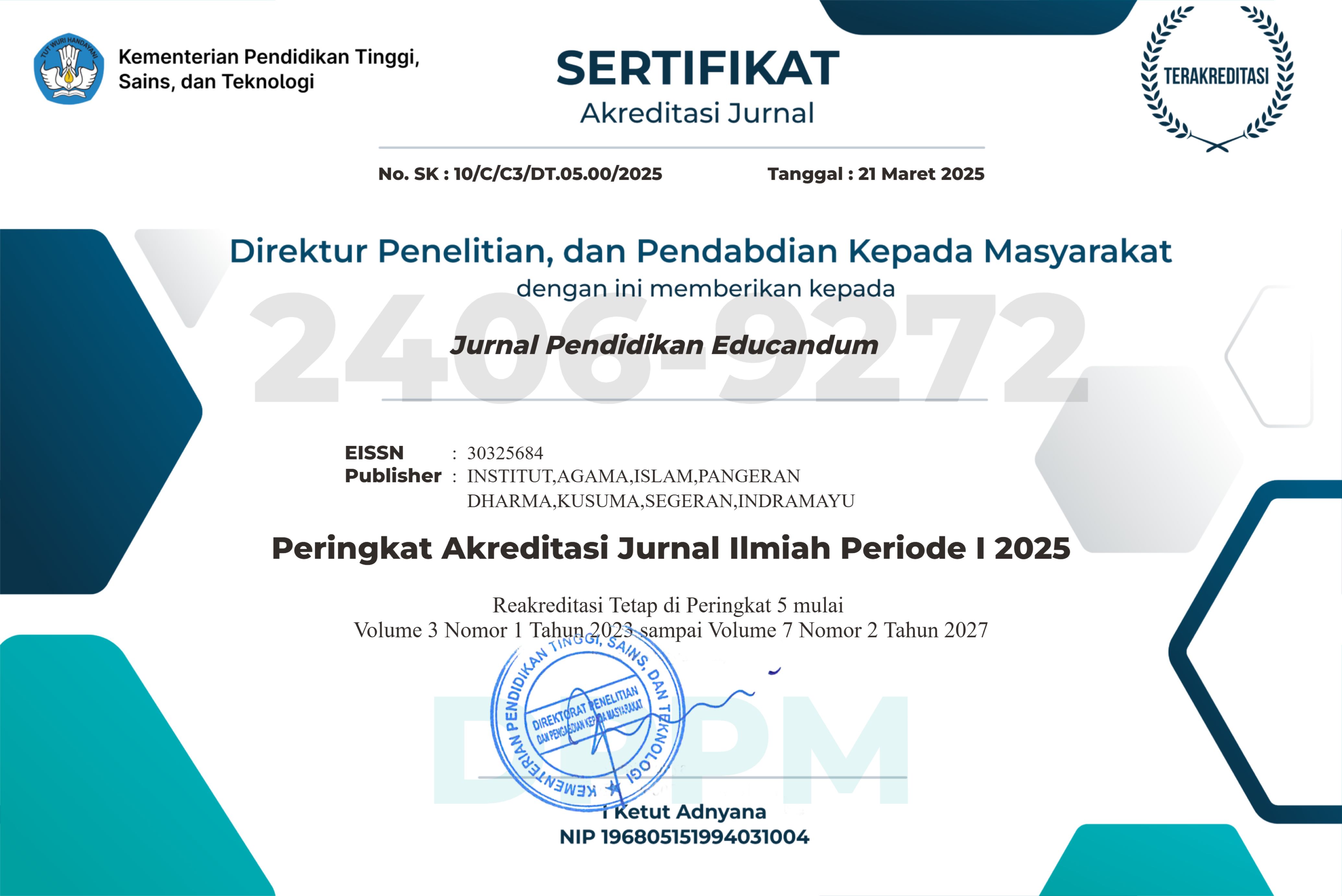Pendidikan Islam Menurut Ibnu Taimiyah
DOI:
https://doi.org/10.55656/jpe.v4i2.193Keywords:
Concept of education, Teaching method, curriculum, teacher's ethics.Abstract
Islamic education is one of the fields of Islamic studies that has received a lot of attention from scientists. Why is this because its role is very, very strategic in efforts to improve human resources and also in Islamic education there are many problems that deserve attention. In this day and age, some adults are preoccupied with the problem of a paradigm, which is very suitable for the development of Islamic education in Indonesia. Such as from magazines, newspapers, journals, even seminar and workshop activities that discuss Islamic education. However, in essence, this problem is not difficult if educational thinkers, namely Islamic education thinkers in Indonesia in particular, are willing to review the concepts of Islamic education that have been explained by classical Islamic figures such as Ibnu Sina, Ibnu Khaldun, Ibnu maskawaih, and Ibn Taymiyah and several others. Whatever will be explained here is the concept of Islamic education according to Ibn Taimiyah, who apart from being famous as a scholar, is also famous as a Muslim. Because his thoughts in the field of education are a response to various problems currently faced by Islamic society which demand logical solutions through educational channels. Ibnu Taimiyah, he was born in the city of Haram in Syria 5 years after Baghdad was occupied by Mongol troops under the leadership of Hulagu Khan. His birth day was Monday 10 Rabiul Awal 661 AH, which coincides with January 22 1263 AD. Ibn Taimiyah died in Damascus on the evening of Monday 20 Dzulqo'dah 728 coincides with September 26, 1328 AD. It is explained that the concept of education according to Ibn Taimiyah is that students are required to have good educational tools to gain knowledge and master perfectly what they learn by aligning knowledge and charity. There are three types of educational methods according to Ibn Taimiyah, namely first with Al Hikmah, second with Al Mauidzah, third with dialogue ( Aljadal Al Ahsan). Regarding his personality, he is very persistent in fighting for reformation efforts, also including community traditions that are against the teachings of Islam and he emphasizes the open door of ijtihad while still holding firm to his own Sufism. Humans themselves will not escape what is called ethics or manners. Ibnu Taimiyah himself is very sensitive to the ethics of educators or students so that he requires them to have them in order to acquire knowledge accompanied by good manners. As for the philosophy of education according to Ibnu Taimiyah, it should be built on the basis of monotheism of faith in the oneness of God, monotheism which is the basis of education including the monotheism of rububiyyah, uluhiyah, and monotheism of name wa sifat. Based on this view of monotheism, Ibnu Taimiyah then explained the purpose of education, students, teachers, curriculum and so on.
Downloads
Published
How to Cite
Issue
Section
License
Copyright (c) 2024 Siti Marfuah, Annisa Sutardi, Asti Sutriani, Erni Fitriani

This work is licensed under a Creative Commons Attribution-NonCommercial-NoDerivatives 4.0 International License.










